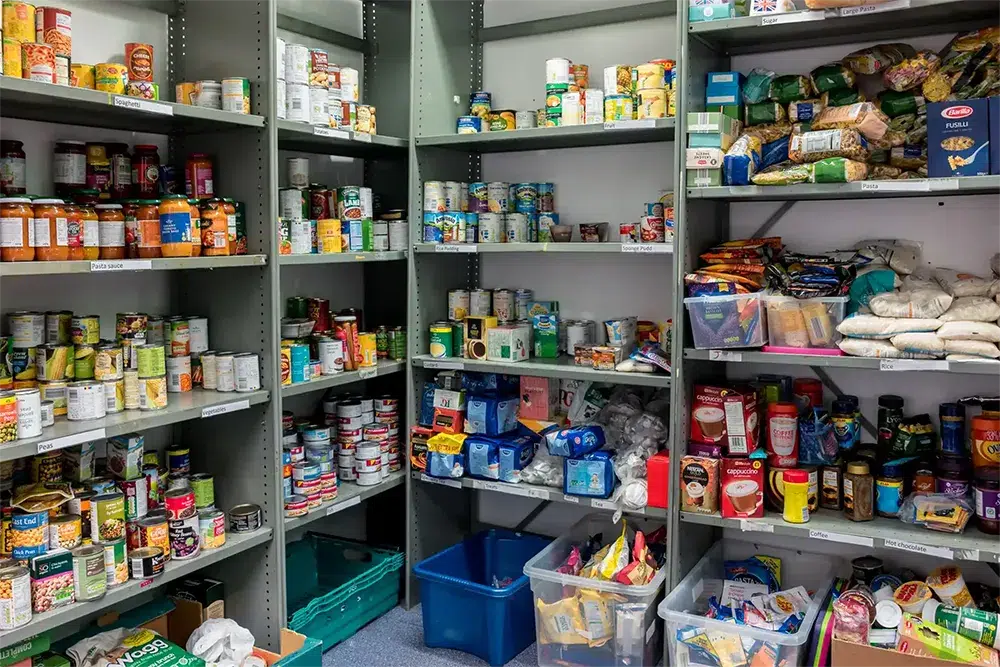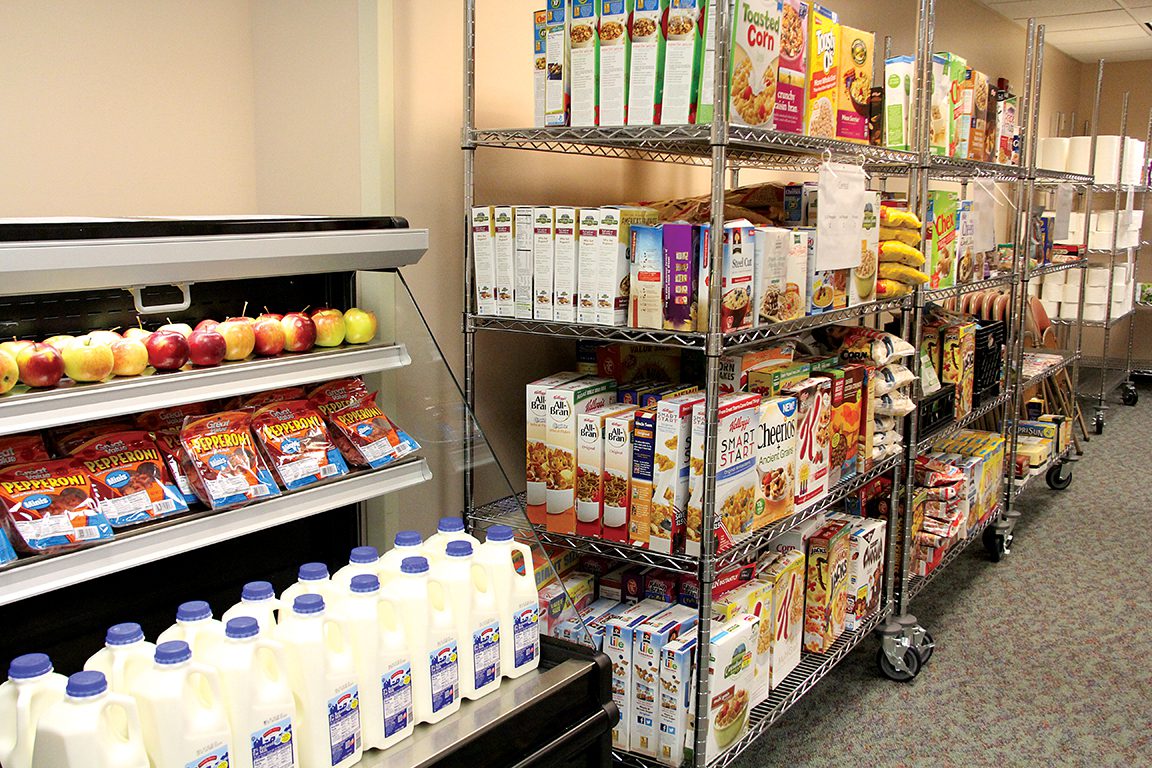The Duty of Food Pantry Lockhart in Sustaining Low-Income Families
The Duty of Food Pantry Lockhart in Sustaining Low-Income Families
Blog Article
Why Supporting Your Neighborhood Food Pantry Is Important for Helping Those in Demand
The importance of sustaining regional food pantries can not be overemphasized, especially in the context of food insecurity, which impacts a worrying number of people and families within our communities. As we discover the complex role of food kitchens, it becomes apparent that their influence prolongs much past simply dispersing food.
Understanding Food Insecurity
Food instability influences approximately 10.5% of families in the USA, highlighting a significant public health and wellness problem that goes beyond simple appetite. It refers to the lack of consistent access to enough food for an active, healthy life. This condition can bring about a series of adverse results, consisting of poor health, enhanced health care prices, and diminished academic performance among kids.
The reasons of food instability are diverse, typically stemming from economic elements such as joblessness, underemployment, and destitution. Geographic location can additionally play an essential duty, with food deserts-- locations with minimal access to budget-friendly and healthy food-- aggravating the concern - Food Pantry Lockhart. In addition, systemic factors, including racial and social inequities, contribute to the out of proportion effect of food insecurity on marginalized communities
Dealing with food insecurity is not just regarding boosting food supply; it calls for a thorough method that encompasses economic security, education and learning, and community assistance. Food instability not only affects private well-being yet additionally has more comprehensive effects for societal health and wellness and productivity. Recognizing its complexity is necessary for establishing effective treatments and cultivating long-lasting solutions that make certain all individuals have reliable access to healthy food.
The Role of Food Pantries
Neighborhood food kitchens function as crucial lifelines for households and people dealing with food insecurity. They provide crucial food products to those that might have a hard time to afford appropriate nourishment because of economic challenge, joblessness, or unpredicted conditions. By dispersing food at no charge, these organizations assist ease cravings and avoid the adverse health effects linked with inadequate diets.
Food kitchens frequently partner with regional ranches, supermarket, and community companies to source a range of nourishing food products, consisting of fresh produce, milk, and healthy proteins. This cooperation ensures that kitchen customers get not just nutrition but likewise healthier alternatives that contribute to overall health.
In addition, food kitchens function as community centers, cultivating links amongst locals and offering a sense of dignity to those in requirement. Several pantries provide additional sources, such as nutrition education and recommendations to social solutions, assisting clients browse their obstacles better.
Fundamentally, food pantries play a multifaceted role in combating food insecurity. They not only address immediate appetite however also empower individuals and family members to improve their scenarios, consequently advertising area strength and communication.

Advantages of Supporting Food Pantries

Sustaining food kitchens not just nurtures those in requirement however additionally strengthens the fabric of the community. By supplying crucial food resources, food cupboards minimize hunger and minimize food instability, which is vital for the health and wellness and well-being of individuals and households. Accessibility to healthy food adds to enhanced physical wellness, better instructional end results for children, and improved psychological health, thus fostering an extra productive and engaged community.
Moreover, supporting food pantries promotes social cohesion. These companies function as hubs for area engagement, uniting volunteers, benefactors, and receivers in a common mission to fight cravings. This cooperation can damage down barriers, foster understanding, and construct relationships amongst diverse community members.
In addition, contributions to food cupboards, whether in the form of food, funds, or time, stimulate the neighborhood economy. Numerous food kitchens prioritize sourcing from local producers, hence sustaining neighborhood farming and services. This develops a investigate this site cycle of assistance that profits not only those in demand however the community in its entirety.
Just How to Get Entailed
Interaction with food cupboards can take many types, permitting people and teams to make a significant influence in their communities. Monetary contributions are additionally vital, as they make it possible for food cupboards to purchase fresh produce and essential supplies.
Offering your time is another impactful means to sustain neighborhood food cupboards. Several companies rely on volunteers for arranging, packaging, and dispersing food. This hands-on participation not only assists the pantry however likewise fosters a feeling of neighborhood. Additionally, take into consideration organizing food drives within your work environment, institution, or neighborhood group to increase understanding and gather sources.
Collaborations with regional businesses can even more enhance assistance for food kitchens. By taking these actions, people and teams can substantially strengthen the initiatives of neighborhood food cupboards and help those in demand.
Area Impact and Connection
Acknowledging the extensive impact of food kitchens on neighborhood wellness is important for fostering a spirit of connection and partnership. Food cupboards offer not just as important sources for those encountering food insecurity however likewise as centers for community involvement. They combine varied groups-- benefactors, customers, and volunteers-- producing an atmosphere where people can support and attach one another.
The effect of food cupboards expands past mere provision of food; they work as a driver for social cohesion. By taking part in kitchen campaigns, area members can develop relationships that transcend socioeconomic barriers. This network of support aids to take apart the stigma usually connected with food aid, cultivating an ambience of approval and understanding.
In addition, food cupboards usually team up with local companies, institutions, and companies, amplifying their reach and effectiveness. These collaborations boost area resilience and motivate a collective action to food instability. As people join in their efforts to support regional food cupboards, they grow a sense of shared objective and obligation, reinforcing the concept that everyone has a duty to play in making sure that nobody goes hungry. Eventually, sustaining food cupboards strengthens the fabric of the neighborhood overall.
Verdict
Supporting local food pantries is important in combating food insecurity and enhancing the wellness of prone populations. Involvement with food cupboards promotes neighborhood connections, advertising social communication and equity.

Report this page